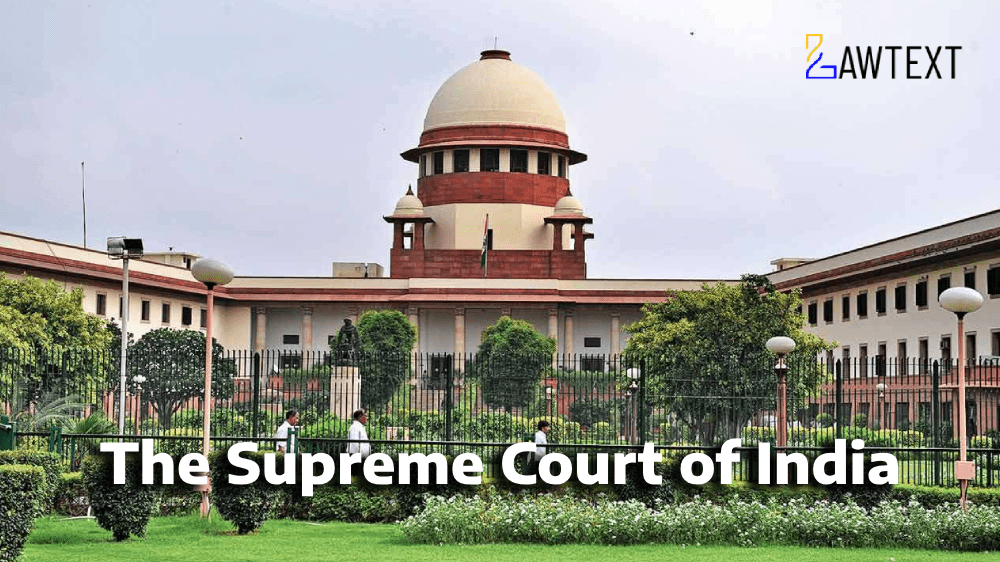

Supreme Court Upholds Employer’s Discretion in Recognizing Equivalent Qualifications, Reverses High Court’s Technical View on Recruitment Rules.
The Supreme Court reaffirmed the principle that employers have the primary authority to determine the equivalence of qualifications in recruitment processes. Courts should exercise restraint and avoid substituting their judgment for that of the employer unless there is clear evidence of arbitrariness or illegality.
The Supreme Court allowed the appeals, setting aside the High Court’s decision. The Court held that the employer’s decision to recognize the appellants’ qualifications as equivalent was reasonable and based on a technical assessment. Judicial review in such matters should be exercised with restraint, and courts should not substitute their judgment for that of the employer.
Major Acts:
Constitution of India (COI) – Articles 14, 16
Lakshadweep Electricity Department (Group ‘C’ and ‘D’ Technical Posts) Recruitment Rules, 2002
Subjects:
Equivalence of qualifications – Judicial review – Recruitment rules – Employer’s discretion – Diploma in Electrical Engineering – Diploma in Electrical and Electronics Engineering – Technical assessment – Public employment – Judicial restraint
Facts:
Nature of the Litigation:
The appeal arose from a dispute over the equivalence of qualifications for the post of Junior Engineer (Electrical) in the Lakshadweep Electricity Department.
The appellants held a Diploma in Electrical and Electronics Engineering, while the respondents held a Diploma in Electrical Engineering.
Remedy Sought:
The appellants challenged the High Court’s decision, which upheld the Central Administrative Tribunal’s (CAT) order setting aside their selection on the grounds that their qualifications did not match the prescribed criteria.
Reason for Filing the Case:
The respondents, who were not selected, contended that the appellants’ Diploma in Electrical and Electronics Engineering was not equivalent to the required Diploma in Electrical Engineering as per the recruitment advertisement.
Previous Decisions:
CAT ruled in favor of the respondents, stating that unstated qualifications cannot be read into the recruitment rules.
The High Court upheld CAT’s decision, emphasizing strict adherence to the advertisement’s specified qualifications.
Issues:
Whether the appellants’ Diploma in Electrical and Electronics Engineering is equivalent to the prescribed Diploma in Electrical Engineering for the post of Junior Engineer (Electrical)?
Whether the employer’s decision to recognize the appellants’ qualifications as equivalent was reasonable and justifiable?
Whether the High Court and CAT erred in interfering with the employer’s discretion in determining equivalence?
Submissions/Arguments:
Appellants:
The Diploma in Electrical and Electronics Engineering is substantially similar to the prescribed Diploma in Electrical Engineering, with only an additional subject (Electronics).
The recruiting authority, after seeking clarification from the Directorate of Technical Education, Kerala, recognized the equivalence.
The employer’s decision should be respected, and courts should not interfere unless there is a glaring error or arbitrariness.
Respondents:
The advertisement explicitly required a Diploma in Electrical Engineering, and no equivalence was stated or recognized in the recruitment rules.
Allowing candidates with different qualifications would amount to a fraud on the public and prejudice those who did not apply due to the lack of equivalence.
Judicial precedents emphasize strict adherence to specified qualifications in recruitment advertisements.
Ratio:
Employer’s Discretion in Equivalence:
The employer is the best judge of whether a candidate’s qualifications meet the prescribed standards. Courts should not interfere unless the decision is arbitrary or unreasonable. (Para 18, 19, 20)
Judicial Restraint in Recruitment Matters:
Courts should avoid taking a technical view of recruitment rules and instead focus on the substance of the qualifications. (Para 22, 23)
Equivalence of Qualifications:
Where the employer has conducted a proper assessment and recognized equivalence, courts should not second-guess such decisions in the absence of glaring errors. (Para 17, 21)
Case Laws Referred:
Para 18: Reference to Anand Yadav v. State of U.P., emphasizing the employer’s prerogative in determining qualifications.
Para 19: Reference to Mukul Kumar Tyagi v. State of U.P., highlighting the recruiting agency’s duty to scrutinize qualifications.
Para 21: Reference to Union of India v. Uzair Imran, reiterating judicial restraint in determining equivalence.
Case Title: Sajid Khan Versus L. Rahmathullah & Ors.
Citation: 2025 LawText (SC) (2) 205
Case Number: [Civil Appeal No. 17308 of 2017] WITH [Civil Appeal No. 17310 of 2017] [Civil Appeal No. 17309 of 2017] [Civil Appeal No. 17311 of 2017]
Date of Decision: 2025-02-20